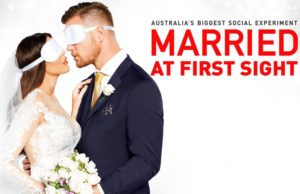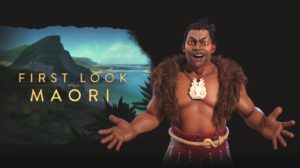1951: Arranged Marriages
August 10, 2020
By AHNZ
N ew Zealand’s next biggest social experiment might be the return of arranged marriages for Maoris. In primitive times this was how monogamous and polygamous marriages were formed by the tribe. The National 1.0 Government hit this on the head, abolishing it with the Maori Purposes Act 1951.
ew Zealand’s next biggest social experiment might be the return of arranged marriages for Maoris. In primitive times this was how monogamous and polygamous marriages were formed by the tribe. The National 1.0 Government hit this on the head, abolishing it with the Maori Purposes Act 1951.
Mariameno Kapa-Kingi, Maori Party candidate for the Maori Seat of Te Tai Tokerau (currently held by Labour 6.0 Minister, Kelvin Davis) says she wants to bring Maori arranged marriages back.
“It’s a tikanga that has been modernised and Ms Kapa-Kingi says making tomo commonplace again is political.”
“This is Māori science applied. That’s what I’m doing.”- Māori Party candidate hoping to bring back tomo, a type of arranged marriage; TVNZ (2020)
I guess she’s right. Arranged Marriage is an institution of social science, or at least it could be if anyone has developed it to that level of scientific discipline. In the old days it was an art, there was no formal political science or social science. Just the same, it was calculated and deliberate and goal-orientated.
 The Maori family was a corporate family, communistic in nature. Each member was not an individual with rights and liberties but a unit to be disposed of according to the tribal leaders- the boss, the Kumatua. While Caucasian New Zealanders have very much left this pre-Enlightenment regard for their fellow man in the dust, Maoris very much still view themselves and others the same way to this day.
The Maori family was a corporate family, communistic in nature. Each member was not an individual with rights and liberties but a unit to be disposed of according to the tribal leaders- the boss, the Kumatua. While Caucasian New Zealanders have very much left this pre-Enlightenment regard for their fellow man in the dust, Maoris very much still view themselves and others the same way to this day.
As Firth explains, control over who gets to marry who was part of the working machinery of everyday life that allowed family blocs to endure…
“By this means they helped to keep alive the family relationship and to maintain a community of interest down the ages between tribes originally sprung from one stock….illustrate the way in which both marriage and adoption may be used, on occasions, in customary form, to serve some economic or social end. Adoption, in particular, has been show to be not a mere haphazard custom due to a whimsical fancy or to a communistic spirit, but to a definitely regulated aim such as strengthening the ties of related groups, or the regaining of neglected land interests.”- 126, Firth (1929)
“Such was the Maori custom; that naming gave the right to guardianship in marriage of the child..”- p 256, Firth (1929)
 Thus, controlling who gets to marry who is a social mechanism by which an autonomous people can control their destiny and ensure the future of their community and people.
Thus, controlling who gets to marry who is a social mechanism by which an autonomous people can control their destiny and ensure the future of their community and people.
Sydney Holland disrupted this customary marriage calculus when his Government, National 1.0, struck down Maori arranged marriages with section eight of the Maori Purposes Act 1951: “Marriages in which a party is a Maori to be subject to general law.” Technically, this was repealed in 1953 but I think its work was already done. Besides which, from this point, the youth were now turning away from their elders and the wedding plans en mass; It was the Second Great Migration. A marriage vouched for in the Maori world didn’t count now, it, and the children so produced, had to be ‘legitimised’ by the Crown.
Freedom of Association
Freedom of Association is one of the Rights of Man, brought to New Zealand by colonisation. It means you get to choose who to be friends with and who you want to be the parent of your children.
A revisionist, ‘modernised’, version of Matariki has been dredged up out of the archaeology books and served up. No reason why arranged marriages shouldn’t be compelled on our children too if the Maori Party could get enough votes. It would be seen as ‘progressive’ but really it would be regressive back to a primitive time (But it was a time when family and territory were strong.)
Holland’s Act undermined generations of genealogical calculus that could not now be legally enforced by Maori authorities on their young and it made useless any future attempts to lay such plans. In particular, it prevented Maoris from finding a way to develop and evolve their own new institutions within Maoridom in their own time. Instead, change was thrust upon them. Rather than learning how to persuade and encourage and reason with their children to go along with their a life plan made before their birth this opportunity was snatched away by The State.
Actually, it is quite legal for children to give their parents proxy to choose their spouses for them right now. We’re talking about making that a non-consentual institution. That’s what Arranged Marriage was and would be again. To affect this change would involve a law change. For one, it would mean an amendment to the Bill of Rights. For another, it could change our laws about marriage to remove the need for consent between spouses.
Rather than look for a voluntary way with just authority to guide the next generation, the Maori Party candidate seeks Crown power to force the youth to obey their elders.
If a parent needs to arrange their children’s marriage partners for them then they have failed as a parent. At least, failed as a libertarian parent. A collectivist parent who is able to subserviate their children is a great success at being a boss.
—
Note: Marriage reform is far from out of the question. Far from static, it’s a political football. Not just the Labour 5.0 change to “civil unions” (2004) either. As recently as 2020, The State abolished registry weddings entirely so that marriage is now entirely in the hands of the Executive branch of Government; Ref. Politicians Confiscate Marriages; NZB3
See also: If Jacinda Ardern had permitted the Ratana church to name her daughter she would also, by Maori lore, be granting them rights to arrange her daughter’s marriage; Ref. 1918: Ratana Fever
Ref. The Primitive Economics of the NZ Maori; Ray Firth (1929)
Ref. Maori Purposes Act 1951; legislation.govt.nz
 Like Comment Share
Like Comment Share





